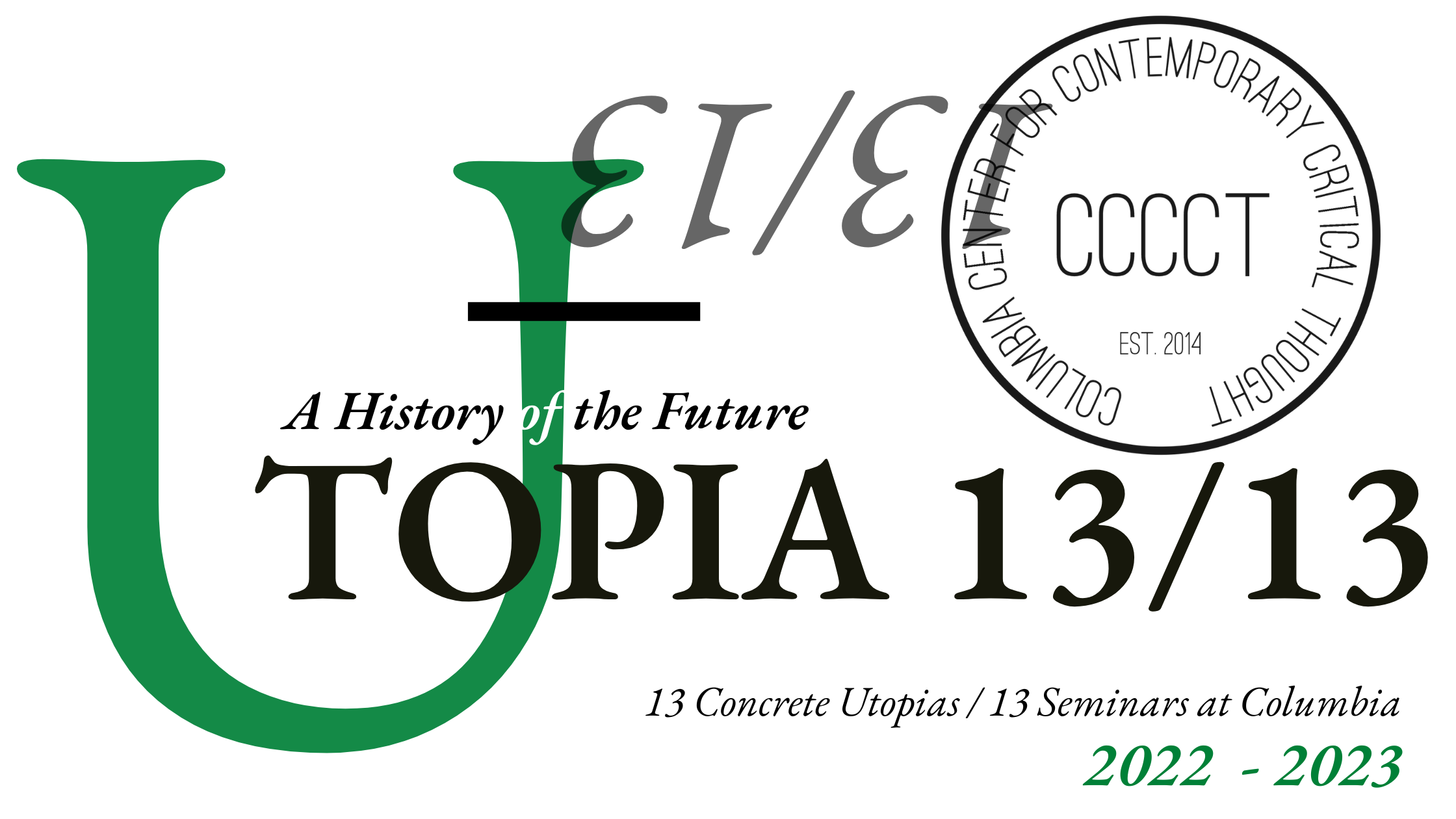[Click on CC for subtitles in French and English (credit: Lea Honorat)]
Laëtitia Riss, Étienne Balibar, and Bernard E. Harcourt
read and discuss
« Utopier le présent : le rêve historique des utopies » by Laëtitia Riss
Extract from La Catacombe de Molussie by Günther Anders
March 17, 2023
EHESS Campus Condorcet, Paris
The relation between utopian thinking and history has accompanied us throughout this Utopia 13/13 series. In this seminar, with Laëtitia Riss’s article “Utopier le présent” (in English here, “To Utopize the Present”), we address head on the temporal nature of modern understandings of utopia.
In a detailed analysis that spans seven centuries and takes us from Thomas More to contemporary thinkers such as Fredric Jameson, Miguel Abensour, Jean-Paul Engélibert and current forms of apocalyptic fiction, Laëtitia Riss recounts the centuries-long history of writing on utopia and the transformation of its relationship to the past, the present, and the future. Through a meticulous analysis, Riss demonstrates how we moderns are still, today, captured by a historicist understanding of utopia.
This presents a problem, Riss argues, given the tendency for history to overshadow utopian thinking, and to subordinate it, especially during times of apocalyptic thinking such as ours—with the global climate crisis promising the end of history. The modern historicization of utopia inverses the proper relation to history by focusing us on the future, rather than on our present. It also masks the contingent nature of our present and thereby erodes our will to transform society.
By contrast, Laëtitia Riss proposes to anchor utopian thought in the present. That alone, she argues, will allow utopian thought to “participate in making the present sensitive to its historicity, revealing it to be the result of a contingent social practice, and in making it, consequently, available as a place for political intervention.” The task, then, is to liberate utopian thought from the grip of the future, in order to focus us back on transforming the present; or, in Riss’s words, to pursue “the dream of a present awakened to itself so that History finds a human face again, freed from the weight of destiny.”
We are delighted to welcome Laëtitia Riss to Utopia 13/13 to present her work and equally delighted to welcome back our dear friend and colleague Étienne Balibar to comment on her proposal. Étienne Balibar opened our seminar this year on the theme of “critical theoretic foundations for concrete utopias.” It is an honor to have Étienne Balibar back to continue the conversation.
